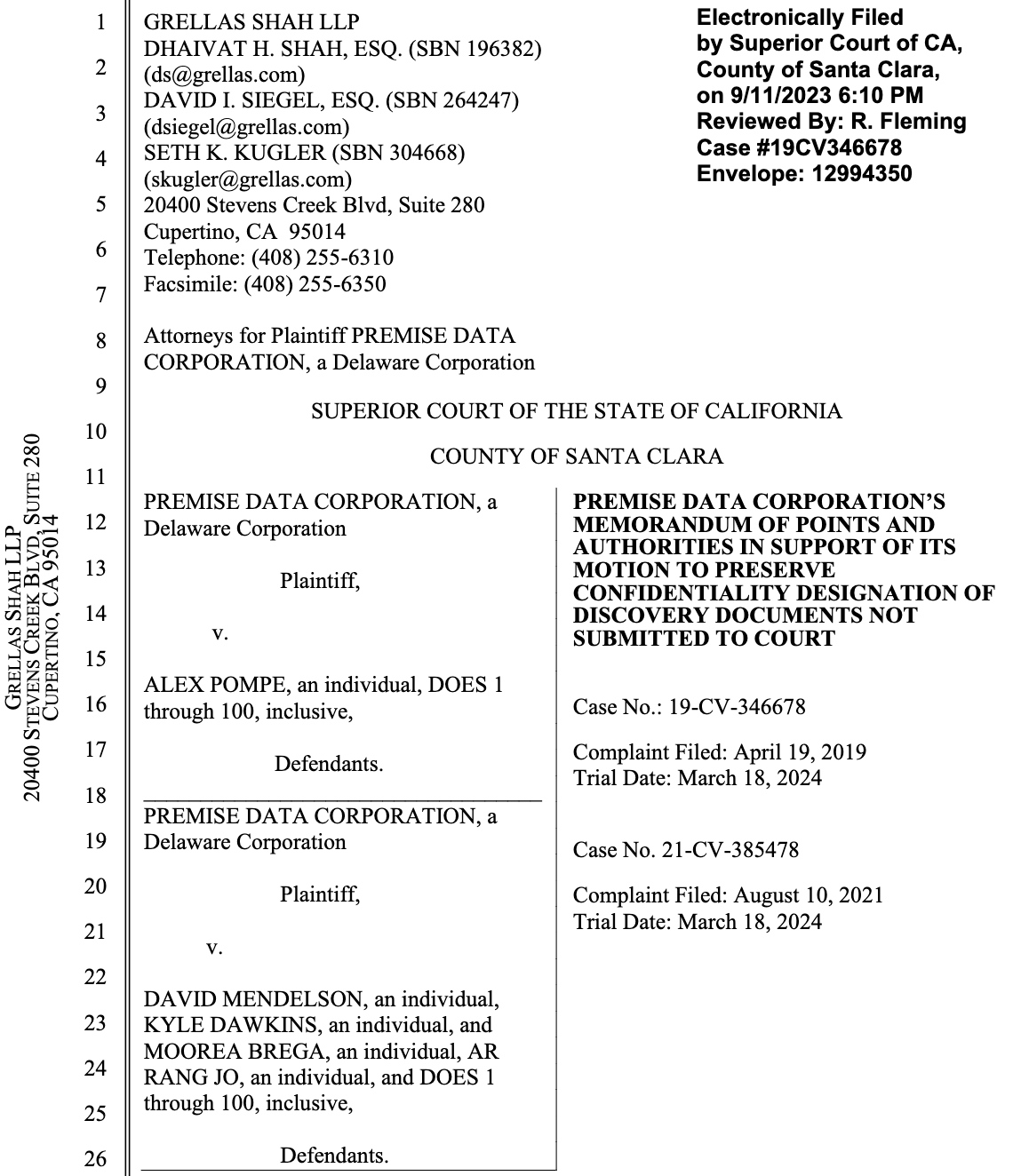Covert gigwork surveillance platform attempts to claw back disclosures of its intelligence clients
In a series of filings on September 11th, lawyers for the gigwork platform Premise are demanding that their previous disclosures of the company's intelligence clients be clawed back and redacted.

Maury Blackman, the CEO of gigwork surveillance platform Premise Data, has been fighting to keep the names of the military and spy agencies his company works for a secret. But while being deposed on Tuesday, August 29th, Mr. Blackman and his lawyers were surprised to learn that they had already accidentally provided the defendent’s team with ‘maybe hundreds’ of documents disclosing Premise’s intelligence clients.
The legal battle has been rife with irony: as part of attempting to keep Premise’s intelligence contracts a secret, both Mr. Blackman and his lawyers have repeatedly authored public documents affirming the existence of such clients. And the lawsuit — which has been ongoing for four years — is against former employee Alex Pompe, for allegedly alerting the Bill & Melinda Gates Foundation as to the covert intelligence work Premise engaged in beyond its public persona as a humanitarian and polling company. (Multiple other former employees are also named, through Mr. Pompe is the central defendant.)
Through a series of legal filings one week ago, on Monday, September 11th, Mr. Blackman’s lawyers requested clawbacks of documents they had previously provided to Mr. Pompe’s legal team and further contested the confidentiality categorizations of numerous documents. Much of the dispute centered around whether particular documents would be categorized as: “Attorney’s Eyes Only”, meaning that even the defendant would be unable to read them; confidential, meaning that the documents would remain a secret from the public; or unprotected.

A lawyer for defendant Kyle Dawkins — who ostensibly left his position as a Senior Software Engineering Manager at Premise in late 2018 — had emailed Premise’s team on August 15th, asking for a set of 96 documents to be dropped down from “Attorney’s Eyes Only” to just a confidential designation. After what appears from legal filings to have been an embarrassing deposition for Mr. Blackman, Premise’s lawyers decided that they had forgotten to redact “national security information” from 14 of the 96 contested documents. According to Premise’s lawyers, their mistake allowed Mr. Pompe’s legal team to ask Mr. Blackman “gotcha” questions regarding his company’s intelligence contracts during his deposition.
Beyond Mr. Blackman’s ‘Motion for Protective Order’ submitted the day before his deposition, where he affirmed the existence of his company’s military and intelligence work in order to attempt to prevent the revelation of specificities, his lawyers last week again affirmed the existence of the company’s support for spy agencies. According to one of the September 11th filings from Premise’s legal team:
“Premise has several independent grounds for maintaining the secrecy of certain categories of clients, including national security, contractual provisions with military and intelligence sector clients, the safety of its contributors around the world, and maintaining its marketplace competitiveness.”
The underlying legal filings can be freely accessed from the website of the Santa Clara County Court, for example, by searching for defendant Alex Pompe. The case is planned to go to trial in March, and further revelations from either discovery or Premise’s legal team itself seem likely. As reported by the author four days ago, Mr. Blackman was arrested in his San Francisco luxury apartment for felony domestic violence against his 25-year-old girlfriend two years into his lawsuit against Mr. Pompe. Six months before Mr. Blackman’s arrest, The Wall Street Journal exposed Premise’s covert military intelligence work by publishing the company’s pitch to Combined Joint Special Operations Task Force-Afghanistan (CJSOTF-A). Within the slide deck, Premise advertised itself as a “Dynamically Re-taskable, Global System” which could aid the U.S. military in conducting Information Operations (IO) and collecting Signals Intelligence (SIGINT) and Human Intelligence (HUMINT). The author reported the same year that Premise was a subcontractor on a project partially funded by the U.S. Defense Intelligence Agency.


